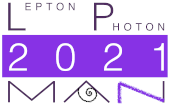Speaker
Description
CPT invariance is one of the most fundamental symmetries in nature and it plays a major role in the formulation of Quantum Field Theory. Although no definitive signal of CPT violation has been observed so far, there are many reasons to carefully investigate various low-energy phenomena that can provide better probes to test CPT symmetry. In this context, neutrino experiments are expected to provide more stringent bounds on CPT invariance violation when compared to the existing bounds from the Kaon system. In this work, we investigate the sensitivity of the upcoming long-baseline experiments: Hyper Kamiokande (T2HK, T2HKK), ESSnuSB and DUNE to constrain the CPT violating parameters $\Delta(\delta_{CP})$, $\Delta(m^2_{31})$ and $\Delta(\sin^2 \theta_{23})$, which characterize the difference between neutrino and antineutrino oscillation parameters. Further, we analyze neutrino and antineutrino data independently and constrain the oscillation parameters governing them by considering the combination of these experiments (DUNE+T2HKK and DUNE+ESSnuSB). In addition, assuming CPT symmetry is violated in nature, we study the individual ability of the aforementioned experiments to establish CPT violation. We found that the experiments Hyper-K (T2HK, T2HKK) and ESSnuSB, along with DUNE, will be able to establish CPT violation in their proposed run-times.
